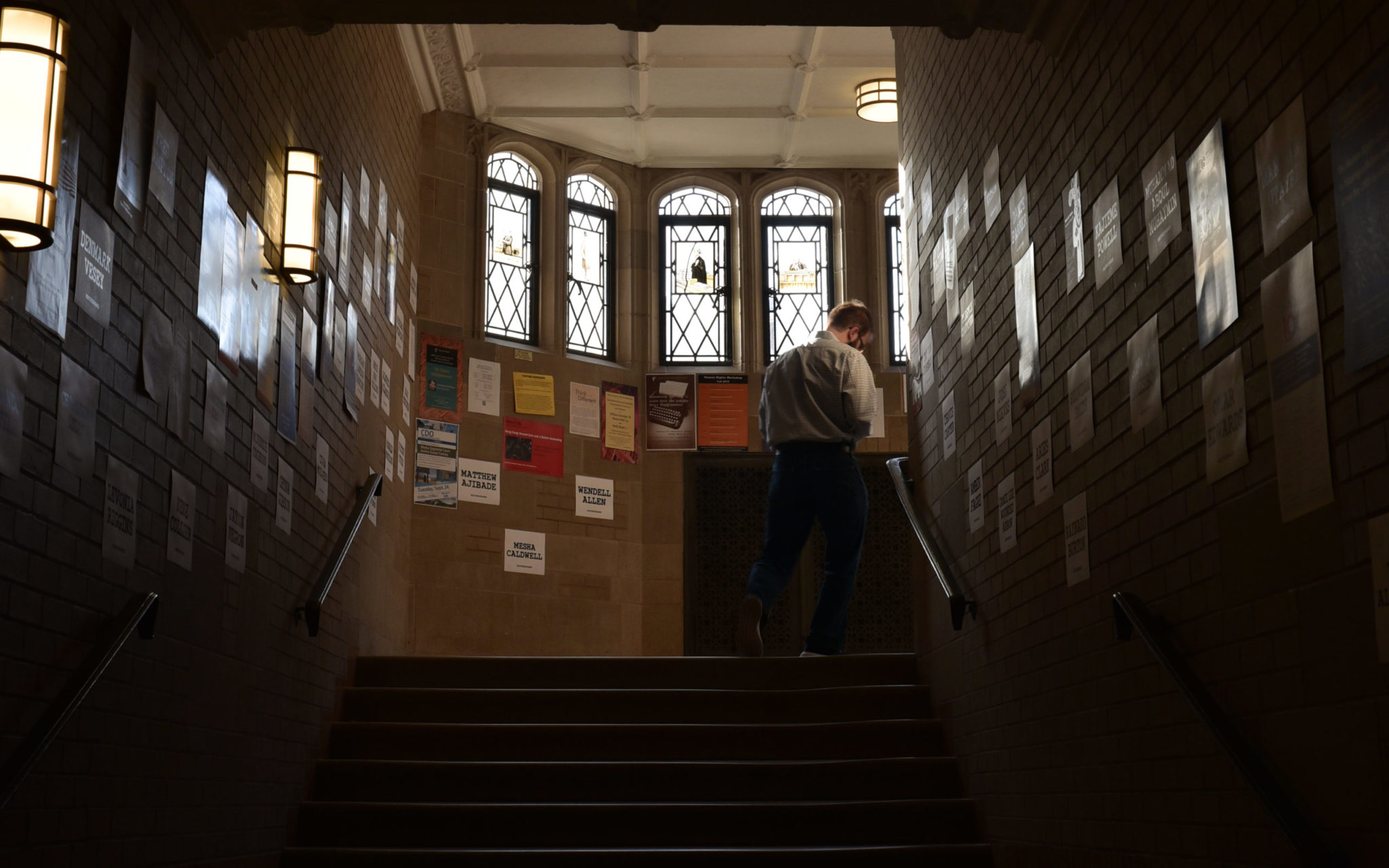YLS Veterans Legal Services Clinic represents deported veteran
The Veterans Legal Clinic of the Yale Law School is representing Ivan Ocon, a deported veteran, in his fight to return to the United States.

Ryan Chiao, Senior Photographer
The case of deported U.S. Army veteran Ivan Ocon, who is currently represented by the Veterans Legal Services Clinic of the Yale Law School in his fight to return to the United States, could set an important precedent for President Joe Biden’s commitment to repatriating veterans.
Ocon filed a petition for military naturalization on Sept. 22, formally initiating the legal process of requesting to return to the country on the basis of his service in the U.S. military. Ocon, who served for six years in the U.S. Army, was deported to Mexico in 2016 as a result of a 2006 criminal conviction for aiding and abetting kidnapping — a conviction that no longer bars his naturalization under current law.
“The first couple months of deportation are the worst because you feel betrayed by your country,” Ocon told the News. “Especially when you go to your final court hearing for immigration in the Department of Homeland Security, and the district attorney tells you that your service doesn’t matter to this country, and good luck in Mexico. That’s kind of like getting stabbed in the heart.”
The Veterans Legal Service Clinic, which provides legal support to vulnerable veteran populations, does not often take on immigration cases.
However, one of Ocon’s representatives said that Ocon’s case is particularly relevant in light of the Biden administration’s commitment to repatriate deported veterans.
“If the Biden administration’s efforts to bring deported veterans home is more than just a press release, DHS must swiftly review and approve Mr. Ocon’s application,” the representative said. “Mr. Ocon grew up in the United States, served his country in three different enlistments and continues to struggle with the invisible wounds of post-traumatic stress stemming from his service. In short, he gave up everything for the United States and, in return, the United States banished him. Anything less than bringing Mr. Ocon home would be a permanent stain on the Biden administration’s record on veterans’ issues.”
The representative, who asked to remain unnamed, added that the Biden administration has thus far taken little action to repatriate veterans like Ocon, but that the surge of support for Ocon’s case from the American Federation of Labor and Congress of Industrial Organizations, abbreviated AFL-CIO, and the Deported Veterans Support House could put additional pressure on the administration, setting a precedent for similar cases.
In 1997, Ocon joined the military after graduating high school in New Mexico, and was deployed to Jordan in connection with Operation Iraqi Freedom. He left the military in 2003, but was arrested in 2006 for aiding and abetting kidnapping after authorities found that he had prior knowledge of a kidnapping committed by his brother.
He received a sentence of 10 years in federal prison, which was eventually reduced to nine for good conduct. However, upon the date of his relief in February 2015, Ocon learned that he would not be allowed to stay in the country.
“I thought I was going home, but when I was signing out, they said I had an ICE hold, and took me to an ICE hold facility,” Ocon said. “For at least, like, 10 months, I fought my case, and I lost.”
Ocon was deported in April 2016. In the five years since then, Ocon has lived in Juarez, Mexico, working as the director of the Juarez location of the Deported Veterans Support House — a resource center and advocacy group for veterans in similar situations to his. According to Ocon, the work this organization does includes helping veterans file Veterans Affairs claims and pensions, as well as organizing fundraisers to help provide deported veterans with clothes and food.
Last spring, the Law School’s Veterans Legal Services Clinic was retained by the AFL-CIO to evaluate the legal claims of a group of deported veterans, according to the anonymous representative. Hector Barajas, the founder of the Deported Veterans Support House, recommended Ocon’s case to the clinic.
“After conducting an intake to learn more about Mr. Ocon’s case and researching his claims, we learned existing precedent made it so the crimes he committed no longer qualify as an aggravated felony that would bar his naturalization,” the representative said. “With that knowledge, we filed an N-400 application with the United States Citizenship and Immigration Service for military naturalization.”
In April 2019, the Board of Immigration Appeals published a precedent decision in the Matter of A. Vasquez, which held that kidnapping is not classified as an aggravated felony.
The anonymous representative, along with Nate Urban LAW ’23 and Casey Smith LAW ’22, is representing Ocon under the supervision of clinical law professor Michael Wishnie.
According to president of the Yale Veterans Association Adrian Bonenberger ’02, there is a long historical tradition of military service as a means to secure citizenship in the United States.
“The idea that a resident of another country could earn citizenship through military service is as old as the United States itself — Casimir Pulaski and Friedrich Wilhelm von Steuben both served in the Continental Army and helped Americans earn their freedom from the hated British tyrants, then were granted citizenship,” Bonenberger wrote in an email to the News. “A person serves, they’re entitled to the rights and obligations of citizenship, regardless of the mistakes they may, or may not, have made afterwards.”
The representative said that the clinic is now awaiting a decision from the USCIS on the status of Ocon’s naturalization petition. If successful, the petition would allow him to permanently return to the United States.
The representative added that the clinic hoped USCIS would process Ocon’s petition quickly, ideally using methods like parole to immediately return him to the United States, but did not say when the clinic expected a decision to be reached.
In the meantime, Ocon told the News that the case was keeping him busy, and that he was holding out hope to be reunited with his daughter, who still lives in the United States.
“It gives me the hope that I will get to see my daughter soon,” Ocon said. “It’s been over 15 years that I’ve seen her. I mean, I’ve seen her on Facebook and all that, but it’s not the same as having her there and being able to hold her. So yeah, there is hope, and I’m very grateful for all the assistance I’ve been getting with this.”
The Veterans Legal Service Clinic was established in 2010.
Update, Oct. 12, An earlier version of the story named the representative of Ocon’s who was quoted about his case. The representative has since asked to remain unnamed due to privacy concerns.








